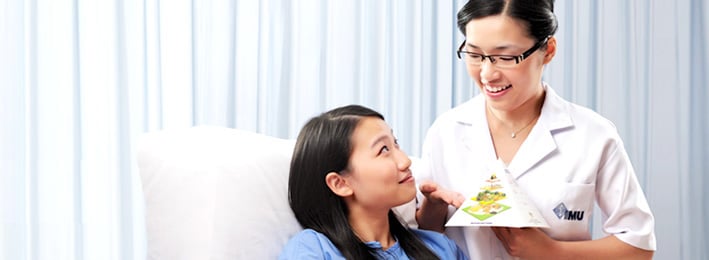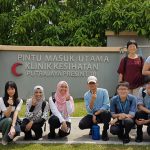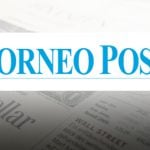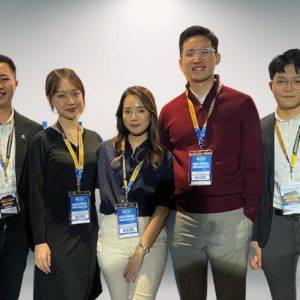As I dived into my final year, I realised how I have been waiting for this particular year since the day I enrolled in this course. I’ve been eager to get into this field and get first-hand experience. I’ve always been a people person and deeply interested in hands-on activities, so it’s justifiable why this clinical year was a great deal for me. Three years of theoretical knowledge in the IMU Dietetics with Nutrition programme had built up the curiosity and the eagerness of exploring the real-life setting. I dreamt of reviewing the Bed Head Ticket (BHT), analysing the problems, brainstorming suitable interventions and advising the patients accordingly. My imaginations took me through every possible scenario of how the final year of clinical placement would be carried out. It even included reaching out to my seniors to understand their experience. Little did I know, the world would be going through a challenging 2020, the same year I step into my clinical placements. 2020 was a redefining year, as the pandemic struck and changed the lives of many, particularly in the healthcare settings. Hence, it impacted the mode of my clinical placement.
The University had initially switched to a hybrid learning method, whereby students attend to cases, physically, on alternate days and conduct virtual case discussions on the other days. However, in mid-October, the spike in the number of daily Covid-19 cases led to a change in the training, taking into account the safety of all students. The clinical placements were then converted to virtual mode and this included the clinical phase, the food service phase as well as the community dietetics phase.
The shift in the learning mode was unexpected and as I said, I have imagined every possible scenario, except this particular one. I was saddened and disappointed because I had high hopes of participating in the real-life work setting. Nonetheless, I knew that this decision was for the best reasons as it was an unpredictable scenario. As a student, I was taken back, so I could only imagine how difficult it was for the faculty to rearrange and plan the curriculum to adapt to these changes.
| Clinical Phase |
|---|
| Despite the abrupt change in plans, the virtual curriculum for our clinical placement was meticulously planned. Our clinical phase was substituted with case scenarios and dynamic case discussions. In addition, workshops were scheduled to highlight and emphasise on key skills : enteral nutrition prescription, Assessment, Diagnosis, Intervention, and Monitoring/Evaluation (ADIME) writing. Although we weren’t able to be physically present to manage the cases, the virtual clinical phase experience still instilled essential skills that we needed as well as allowed us the opportunity to truly identify our gaps and further discuss these with our teammates in the presence of our clinical educators. |
| Community Phase |
| It was by far one of the most interesting experiences I have experienced as an undergraduate. We were tasked to conduct a webinar for the public on selected topics – public education, a high in demand skill for dietitians in the 21st century. It took weeks of preparation and planning to deliver a successful hour-long webinar. The behind the scenes preparation for the webinar provided us the opportunity to experience translating heavy, theoretical Medical Nutrition Therapy (MNT) knowledge into bite-size versions for the public. It also enhanced my presentation and communication skills to further engage with the audience. |
| Food Service Phase |
| I had my doubts on how it could be conducted virtually but with the help of our local preceptors and university supervisors, it was an insightful phase. We polished our skills on menu planning and learnt more on quality improvement in a food service setting. The food service virtual placement gave us the chance to understand the role of a food service dietitian through discussions with our local preceptors and assignments to understand the depth. |
In a nutshell, my final year had not been what I had imagined, but it was a memorable, experiential learning. I gained vast insight on the role of a dietitian, despite the virtual learning mode. With the world moving towards further technological modernisation, i would conclude that there was no significant difference between the physical mode and virtual mode in terms of knowledge gained.
Although as a student, I dreamed of being physically present, I believe this virtual clinical experience has been so enlightening and informative that it has made me improve and look forward to the future when I am able to practice as a dietitian. Written by Syarifah Hasanah Adeila BSc. (Hons) Dietetics with Nutrition (DN 1/17)









